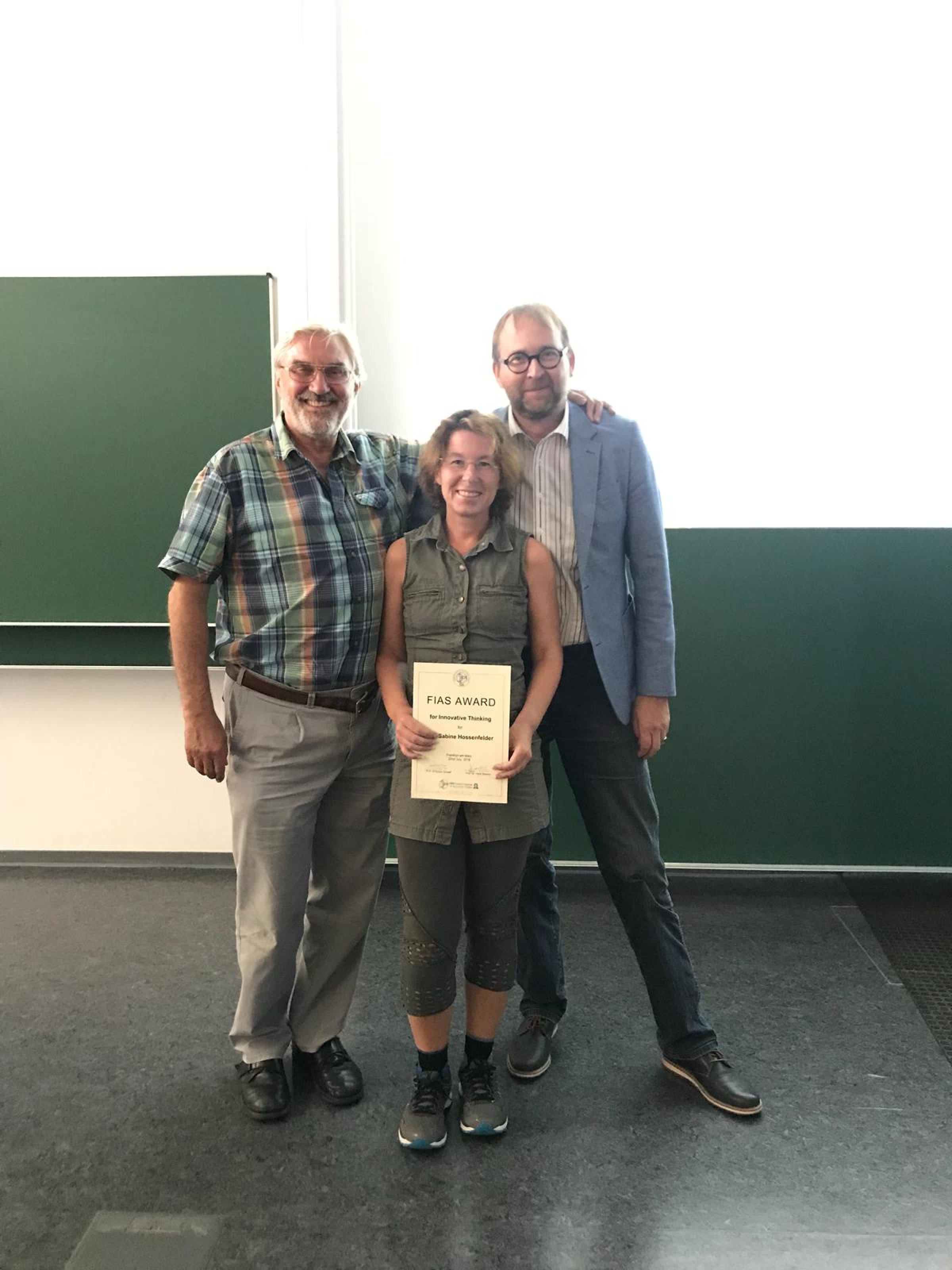August 14, 2019
FIAS is courageous and encourages
Dr. Sabine Hossenfelder, Research Fellow, has been awarded with the FIAS AWARD FOR INNOVATIVE THINKING 2019
The annual FIAS summer party, which was attended by numerous FIAS members, served as a worthy platform to award Dr. Sabine Hossenfelder with the newly established prize.
Sabine Hossenfelder graduated in mathematics and physics at the Goethe-University Frankfurt, where she also completed her diploma thesis "Particle Production in Time Dependent Gravitational Fields" in Walter Greiner's group and her PhD Thesis "Black Holes in Large Extra Dimensions" with Horst Stöcker with distinction. She went to GSI, Darmstadt, as a postdoc. After research stays in the USA (University of Arizona, University of California) and at Perimeter Institute in Canada she accepted an offer as Assistant Professor at the Nordita Institute for Theoretical Physics, Stockholm, in 2009.
Since 2015 Sabine Hossenfelder has been a Research Fellow at FIAS and heads the research group "Analog Systems for Gravity Duals". Her research focuses on the phenomenology of quantum gravity and the search for experimental evidence for quantum gravity.
As freelancer, she has been running a blog, "Backreaction", since 2006 and writes for a column for Quanta Magazine and has written contributions, among others, for New Scientist, Scientific American, The Guardian, and the New York Times.
In her provocative bestseller "Lost in Math: How Beauty Leads Physics Astray" Sabine Hossenfelder deals with the conflict between scientific objectivity and the belief in beautiful, elegant theories. Nobel Laureate Frank Wilczek recommended her work as an "intensely personal and intellectually hard-fought" book, even though he disagreed with it "in many respects".
Against this background, Dr. Sabine Hossenfelder is the ideal first award winner for the newly created prize, which is endowed with 10,000 euros. With this newly established prize, the FIAS Board of Directors would like to honor outstanding scientists who, in the age of increasing mainstreaming of science, are introducing new paths through outstanding lateral thinking, setting new impulses, or questioning much-loved hypotheses.
With this award, FIAS wants to set an example that innovative ideas are more than ever necessary to secure the development capability of science and to preserve science as a source of ideas for social developments. And FIAS would like to use this prize to strengthen the courage of young scientists to think creatively and scientifically differently and to think beyond their own disciplines - not only at FIAS. It is precisely these ideas that are often highly controversial, difficult to publish or so far ahead of their time that they are regarded as "not relevant" according to classical short-lived citation criteria.
